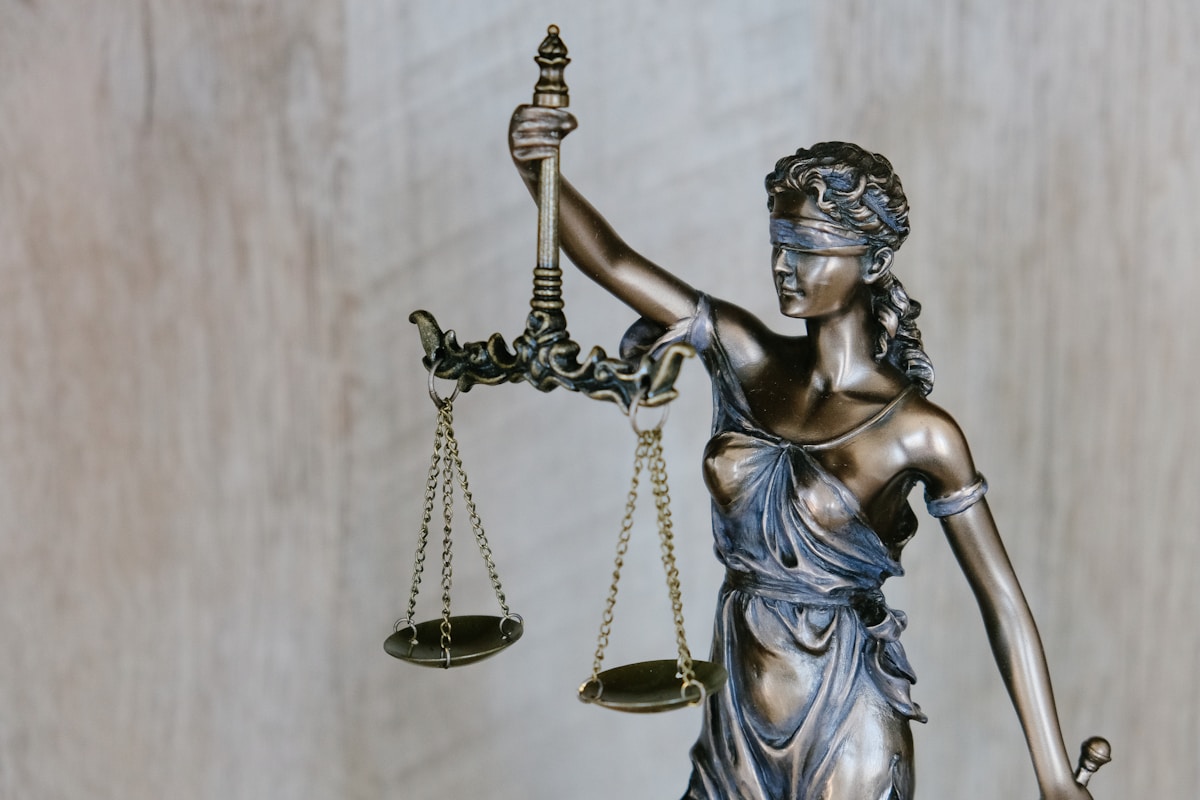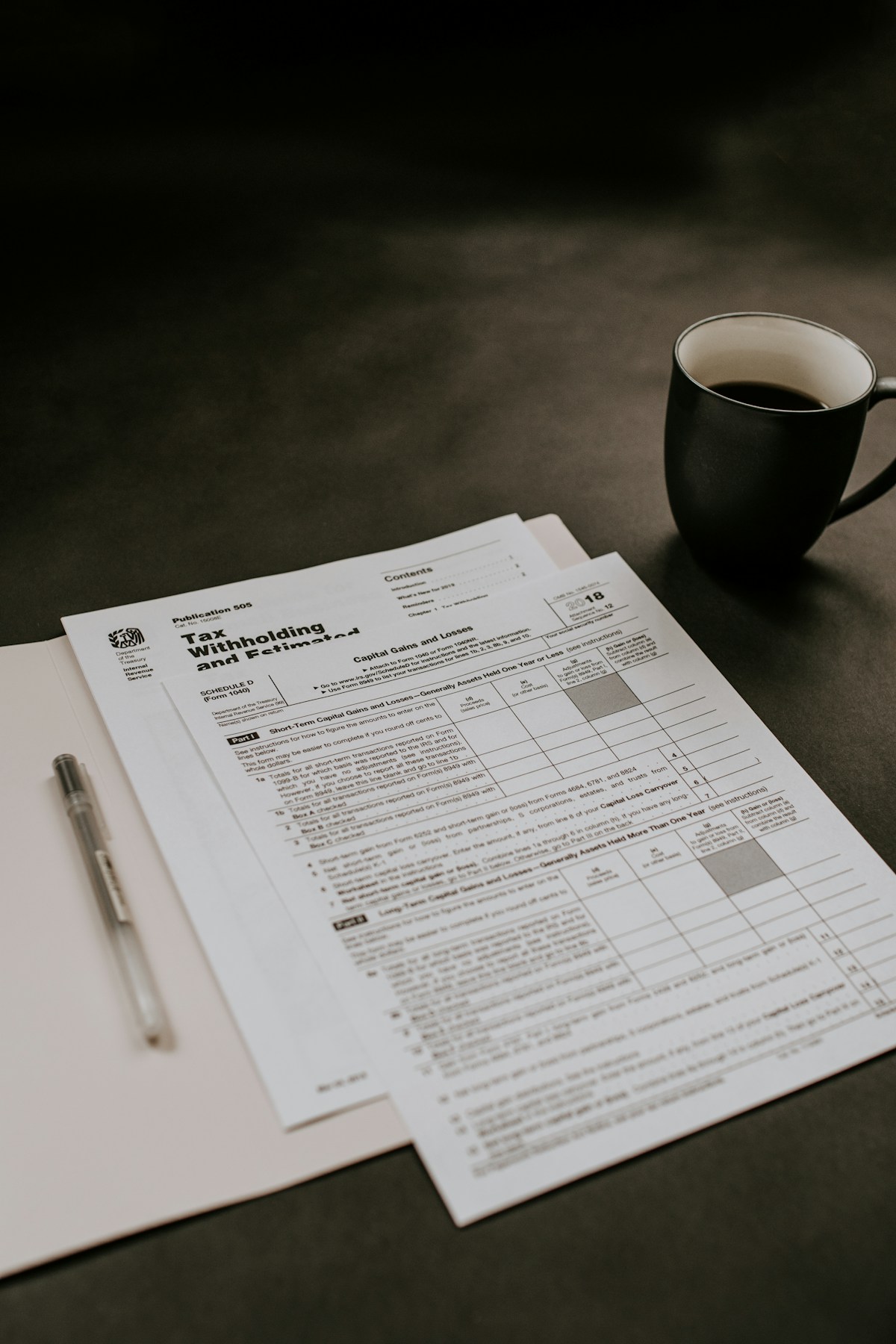Offshore work environments—oil rigs, drilling platforms, ships, and other maritime settings—present some of the most hazardous working conditions imaginable. When accidents occur in these remote, challenging environments, injured workers face not only physical recovery hurdles but also complex legal battles for fair compensation.
Offshore accident lawyers specialize in navigating the intricate web of maritime laws, federal regulations, and industry practices to ensure injured workers receive the compensation they deserve. These attorneys employ specialized strategies and approaches that differ significantly from those used in standard workplace injury cases.
The Specialized Battleground of Maritime Law

Maritime attorney Michelle Torres has represented offshore workers for over twenty years. "When a land-based construction worker is injured, their case typically falls under state workers' compensation laws with relatively straightforward procedures," she explains. "But offshore injuries involve overlapping jurisdictions, multiple potentially responsible parties, and specialized federal maritime laws dating back centuries."
This complex legal environment requires attorneys to master several intersecting legal frameworks:
Jones Act Protection
For workers who qualify as "seamen" under the Jones Act, attorneys leverage this pivotal legislation to fight for their clients. "The Jones Act is one of the most powerful tools in our arsenal," explains veteran maritime attorney Robert Kingsley. "It allows injured seamen to sue their employers for negligence—a right most land-based workers don't have under workers' compensation systems."
The Jones Act provides several critical advantages for injured workers:
- The right to sue employers directly for negligence
- A more favorable "featherweight" causation standard
- The right to a jury trial
- Potential compensation for pain and suffering, which isn't available under workers' compensation
"Proving Jones Act seaman status is often our first major battle," notes Kingsley. "Companies frequently try to classify workers as non-seamen to avoid Jones Act liability. We counter by documenting our client's connection to a vessel in navigation, showing they contributed to the vessel's mission, and demonstrating they spent at least 30% of their work time in service of a vessel."
Unseaworthiness Claims
For qualifying seamen, offshore attorneys also pursue unseaworthiness claims under general maritime law. "An unseaworthiness claim doesn't require proving negligence," explains maritime litigator Maria Chen. "We only need to establish that some aspect of the vessel wasn't reasonably fit for its intended purpose."
Contrary to what the name suggests, unseaworthiness doesn't mean the vessel was at risk of sinking. It's a much broader concept that can include:
- Inadequate or improperly maintained equipment
- Insufficient or improperly trained crew
- Improper loading or cargo arrangement
- Unsafe work methods
- Slippery surfaces or other hazardous conditions
"Unseaworthiness claims provide a powerful alternative path to recovery," Chen explains. "Even if we face challenges with the Jones Act negligence claim, we can often still prevail on unseaworthiness grounds."
Longshore and Harbor Workers' Compensation Act
For offshore workers who don't qualify as seamen, attorneys pursue rights under the Longshore and Harbor Workers' Compensation Act (LHWCA) or its extension, the Outer Continental Shelf Lands Act (OCSLA).
"The LHWCA provides significantly better benefits than most state workers' compensation systems," notes attorney James Landry, who specializes in LHWCA cases. "We fight to ensure our clients receive the full medical benefits, disability compensation, and vocational rehabilitation services the Act provides."
Importantly, LHWCA claims don't prevent injured workers from pursuing additional third-party claims against non-employers who may share responsibility for the accident.
"We vigorously pursue LHWCA benefits while simultaneously investigating potential third-party claims against equipment manufacturers, contractors, or vessel owners," Landry explains. "This two-pronged approach often results in substantially better overall compensation."
Battling Powerful Adversaries
Offshore accident lawyers frequently face formidable opposition from large energy companies, drilling contractors, and vessel operators with vast resources and experienced legal teams.
Early Aggressive Investigation
Maritime attorney Victor Ramirez emphasizes the importance of rapid response: "Companies mobilize investigation teams immediately after an offshore accident. As plaintiff's attorneys, we must match that urgency."
Top offshore accident attorneys employ strategies including:
- Dispatching investigators to document accident scenes before evidence disappears
- Issuing preservation letters to prevent evidence destruction
- Interviewing witnesses before company representatives can influence their recollections
- Securing maintenance and deck logs, equipment records, and safety reports
- Obtaining Coast Guard, BSEE, or other regulatory investigation findings
"The investigation phase sets the foundation for everything that follows," Ramirez notes. "We've had cases where evidence secured in the first 48 hours proved decisive years later in trial."
Combating Defence Tactics
Companies deploy predictable but formidable defense strategies in offshore injury cases. Experienced maritime attorneys anticipate and counter these approaches.
"We consistently see companies blame the injured worker, claim pre-existing conditions, or argue that injuries aren't as severe as claimed," says Torres. "We counter with thorough documentation, expert testimony, and compelling evidence of safety violations."
Common defense tactics and countermeasures include:
| Defense Strategy | Attorney Countermeasure |
|---|---|
| Blaming the worker for causing the accident | Documenting safety violations, inadequate training, or equipment failures that were the true causes |
| Claiming injuries existed before the accident | Obtaining complete medical history and expert testimony differentiating new injuries from pre-existing conditions |
| Minimizing injury severity | Comprehensive medical documentation and life impact evidence showing the full extent of injuries |
| Attempting to classify workers as non-seamen | Detailed documentation of vessel connection and nature of duties |
| Arguing that another company was responsible | Pursuing claims against all potentially responsible parties while establishing the contractual relationships between them |
"Companies hope that complex contractual arrangements will obscure liability," notes Chen. "We invest significant resources in understanding the web of relationships between operators, contractors, subcontractors, and vessel owners to ensure all responsible parties are held accountable."
Exposing Safety Shortcuts
Veteran maritime attorney Thomas Blackwell has a direct approach: "In most offshore accidents, if you dig deep enough, you'll find a history of safety shortcuts, deferred maintenance, or inadequate training."
Effective attorneys uncover these patterns by:
- Analyzing years of safety records and incident reports
- Reviewing maintenance histories and equipment inspection records
- Examining internal company communications about safety concerns
- Interviewing former employees about safety practices
- Consulting with industry experts about appropriate safety standards
"Workers are rarely injured because of a single misstep," Blackwell emphasizes. "Usually, the accident represents the culmination of a series of safety compromises that created an accident waiting to happen."
Building the Medical Case
Offshore injuries often present unique medical challenges due to the remote location, delayed treatment, and physically demanding nature of maritime work.
Comprehensive Medical Documentation
"Offshore injuries differ from typical workplace injuries," explains Dr. Elaine Morrison, who specializes in treating maritime workers. "The delay in reaching sophisticated medical facilities, combined with the often violent nature of offshore accidents, creates unique injury patterns and treatment challenges."
Maritime attorneys work with medical experts to document:
- The full extent of physical injuries, including those that may develop complications over time
- Psychological impacts, including PTSD from traumatic accidents in isolated environments
- The effect of delayed treatment due to remote location
- Long-term prognosis and future medical needs
- The impact on ability to return to offshore work
"We ensure our clients receive thorough evaluations from appropriate specialists," says Ramirez. "Companies often push workers toward company doctors who may minimize injuries or prematurely clear them for return to work. We counter this by connecting clients with independent medical experts who provide objective, comprehensive assessments."
Establishing Full Life Impact
Beyond medical documentation, attorneys build compelling narratives about how injuries affect every aspect of a worker's life.
"Offshore workers often define themselves by their physical capabilities," Chen observes. "When serious injuries prevent them from returning to the work they know, the psychological and financial impacts can be devastating."
Effective attorneys document:
- Day-to-day physical limitations and pain
- Lost earning capacity, considering the high wages of offshore work
- Impact on family relationships and role within the family
- Psychological effects, including depression and anxiety
- Loss of identity connected to offshore work
"We tell our client's complete story, not just of their physical injuries but of how the accident has fundamentally changed their lives," Torres emphasizes. "This comprehensive approach increases both the likelihood of settlement and potential compensation amounts."
Leveraging Industry Knowledge
Successful offshore injury attorneys possess deep knowledge of maritime operations that goes far beyond legal expertise.
Understanding Offshore Operations
Attorney James Landry worked on drilling platforms before becoming a lawyer. "When a client describes an accident involving the iron roughneck or talks about issues with the BOP, I know exactly what they're referring to," he says. "This technical knowledge helps us identify critical safety violations that generalist attorneys might miss."
Top maritime attorneys develop expertise in:
- Drilling operations and equipment
- Vessel types and operational requirements
- Industry-specific safety protocols
- Regulatory requirements from BSEE, Coast Guard, and other agencies
- Offshore industry culture and practices
"This specialized knowledge helps us speak the language of the industry," Landry notes. "Whether we're deposing company representatives, interviewing witnesses, or presenting to a jury, understanding the technical aspects of offshore operations gives us a significant advantage."
Engaging Specialized Experts
Maritime attorneys work with industry-specific experts who can evaluate technical aspects of accidents and explain complex concepts to judges and juries.
"Expert selection is crucial in offshore cases," explains Kingsley. "We work with former BSEE investigators, veteran drilling engineers, maritime safety specialists, and others who can authoritatively identify safety violations and explain industry standards."
Key expert types include:
- Maritime safety experts who can testify about industry standards
- Engineers specialized in relevant equipment or systems
- Human factors experts who can address training and operational issues
- Former regulatory investigators familiar with compliance requirements
- Medical specialists experienced with offshore injuries
"These experts not only strengthen our cases but often help us identify safety violations that weren't immediately apparent," Kingsley adds. "Their industry knowledge complements our legal approach, creating a formidable combination."
Strategic Case Presentation
Whether negotiating settlements or presenting at trial, offshore accident attorneys employ strategic approaches to maximize client recovery.
Compelling Story Construction
"Technical legal arguments matter, but cases are ultimately about human stories," says Chen. "We construct narratives that explain not just what happened but why it matters in human terms."
Effective attorneys develop case presentations that:
- Simplify complex technical and legal concepts
- Emphasize the human cost of corporate safety shortcuts
- Use visual evidence effectively, including accident reconstructions
- Connect safety violations to specific injuries
- Highlight the long-term impact on workers and their families
"Jurors may not understand the technical details of blowout preventer maintenance," notes Torres, "but they absolutely understand what it means when a company chooses profits over worker safety. We make those connections clear and compelling."
Multi-party Litigation Strategy
Offshore accidents typically involve multiple potentially responsible parties with complex contractual relationships. Attorneys strategically navigate these relationships to maximize client recovery.
"We often pursue claims against multiple defendants simultaneously," explains Blackwell. "The vessel owner, the operating company, equipment manufacturers, and various contractors may all share responsibility."
This approach provides several advantages:
- Multiple potential sources of recovery
- Ability to overcome liability limitations in certain maritime laws
- Opportunity to leverage conflicts between defendants
- Access to different insurance policies
"Co-defendants frequently point fingers at each other," Blackwell notes. "We use these disputes strategically, allowing defendants to establish evidence of each other's negligence that ultimately benefits our client."
Securing Immediate and Long-term Support
Beyond pursuing damages claims, effective maritime attorneys ensure clients receive support throughout the recovery process.
Maintenance and Cure Enforcement
For qualified seamen, attorneys vigorously enforce maintenance and cure rights—the maritime law requirement that employers provide living expenses, medical care, and wages until maximum medical improvement.
"Maintenance and cure is an absolute right regardless of fault," emphasizes Ramirez. "Yet companies frequently try to minimize these payments or terminate them prematurely. We fight these efforts aggressively, even pursuing additional damages when companies unreasonably withhold these benefits."
Attorneys push back against common tactics like:
- Providing inadequate daily maintenance rates that don't cover actual living expenses
- Prematurely declaring maximum medical improvement
- Directing workers to company-selected doctors who minimize treatment
- Challenging whether the injury occurred in service of the vessel
"Proper maintenance and cure support is crucial during the often lengthy litigation process," Ramirez notes. "We ensure these benefits continue appropriately while the larger case progresses."
Long-term Financial Protection
Effective attorneys consider clients' long-term financial security when structuring settlements or awards.
"For catastrophic injuries, managing settlement funds properly is essential," explains Chen. "We often work with financial advisors and structured settlement specialists to establish arrangements that provide lifetime support."
These arrangements may include:
- Structured settlements providing guaranteed lifetime income
- Special needs trusts to protect eligibility for government benefits
- Medical trusts specifically for future care needs
- Investment strategies appropriate for the client's situation
"The goal isn't just maximizing the settlement amount but ensuring it provides security and appropriate care for decades to come," Chen emphasizes.
The Advocate's Role Beyond the Courtroom
Effective offshore accident attorneys recognize that their responsibility extends beyond legal proceedings.
Holistic Client Support
"Offshore injuries disrupt every aspect of a worker's life," says Torres. "While pursuing their legal case, we also connect clients with resources for their physical recovery, psychological wellbeing, and family needs."
This comprehensive approach includes:
- Referrals to appropriate medical specialists
- Connections to vocational rehabilitation services
- Resources for psychological support
- Assistance navigating insurance and benefits systems
- Financial guidance during the litigation period
"The legal case is just one component of recovery," Torres emphasizes. "We serve as advocates for our clients' overall wellbeing throughout the process."
Industry Safety Advocacy
Many offshore accident attorneys view their work as part of a broader mission to improve industry safety standards.
"Each case we handle has the potential to drive safety improvements that protect future workers," notes Kingsley. "When companies face significant financial consequences for safety violations, industry practices gradually improve."
This advocacy takes multiple forms:
- Pushing for safety improvements as part of settlements
- Working with regulatory agencies on systemic issues
- Publicly highlighting recurring safety violations
- Supporting improved safety legislation
"Our primary responsibility is to our individual clients," Kingsley acknowledges. "But we never lose sight of the broader impact our work can have on preventing future tragedies."
Choosing the Right Advocate
For injured offshore workers, selecting an attorney with specific maritime experience is crucial.
"Maritime law is a specialized field with its own rules, precedents, and strategies," emphasizes Blackwell. "An attorney might be excellent at handling car accidents or land-based workplace injuries but completely unprepared for the complexities of offshore cases."
Key considerations when selecting representation include:
- Specific experience with maritime and offshore injury cases
- Understanding of the applicable maritime laws (Jones Act, LHWCA, etc.)
- Familiarity with offshore operations and industry practices
- Resources to take on major corporations and their insurers
- Track record of successful outcomes in similar cases
"The attorney you choose can make a life-changing difference in the outcome of your case," Blackwell concludes. "The best offshore accident lawyers combine maritime legal expertise with industry knowledge and a genuine commitment to fighting for injured workers against powerful adversaries."
The Path Forward
Offshore work will always involve inherent risks, but workers who suffer injuries deserve fair compensation and support for their recovery. Specialized maritime attorneys play a crucial role in fighting for these rights against powerful industry interests.
Through aggressive investigation, technical maritime law knowledge, industry expertise, and strategic case presentation, these attorneys help level the playing field between injured workers and the companies responsible for their injuries.
For offshore workers facing the aftermath of serious accidents, these dedicated legal advocates provide not just legal representation but a pathway to recovery, stability, and justice in some of life's most challenging circumstances.






